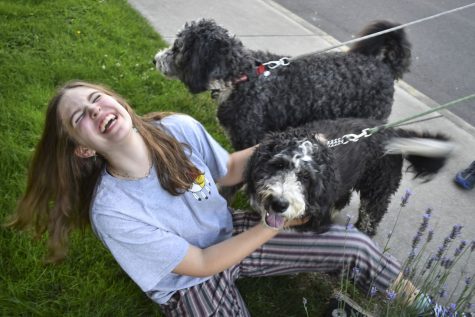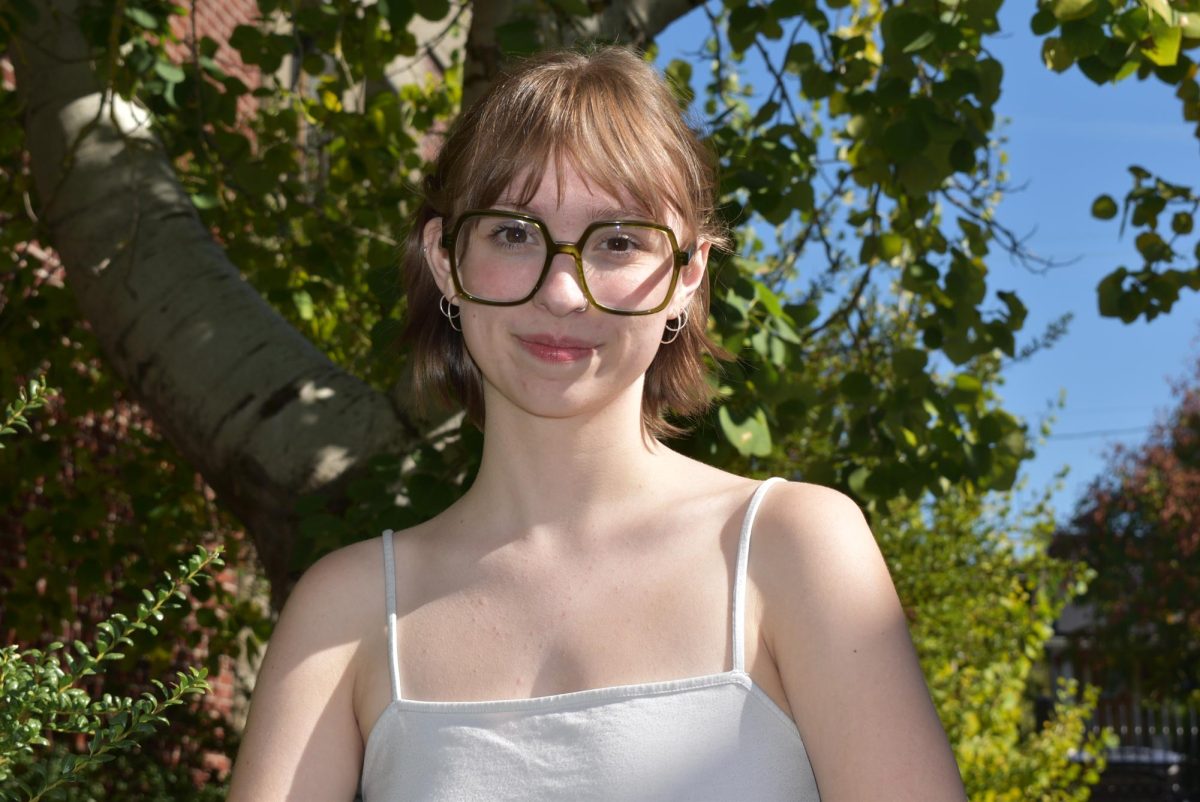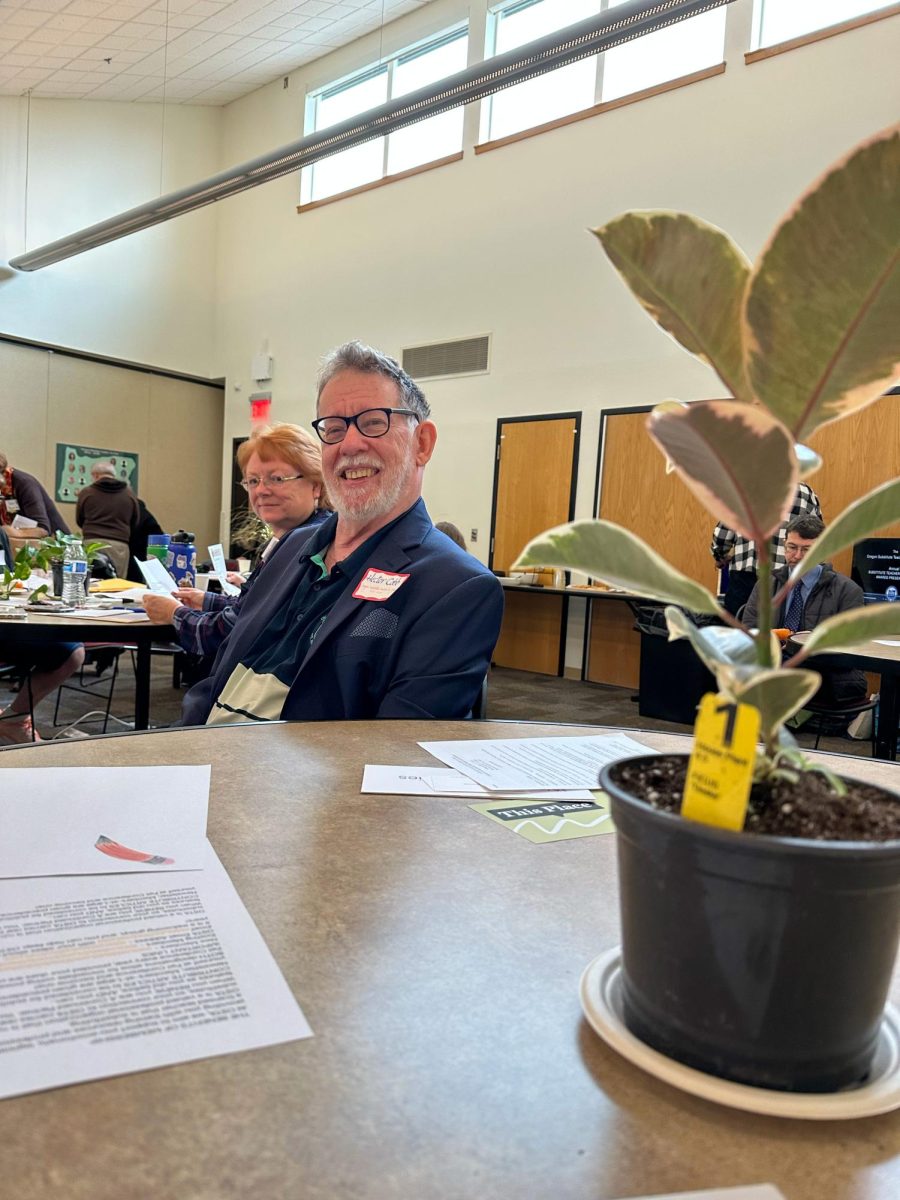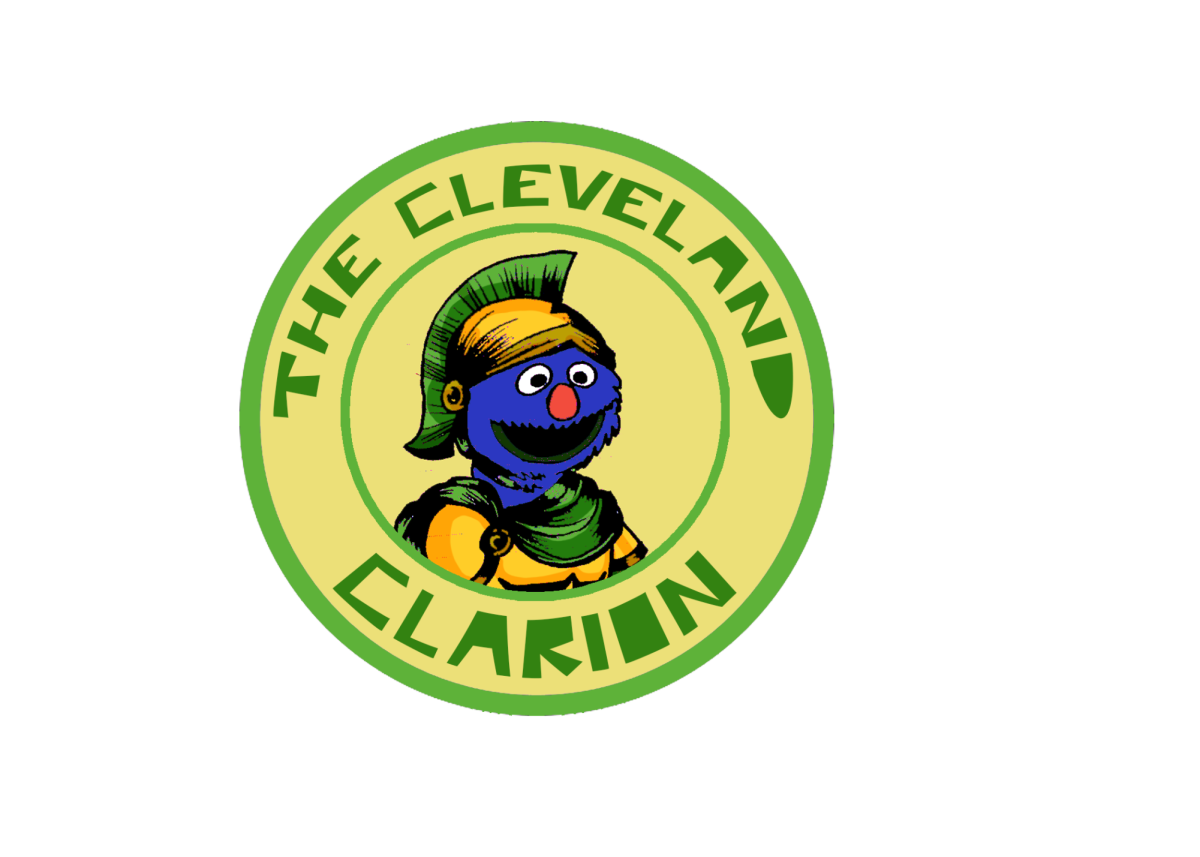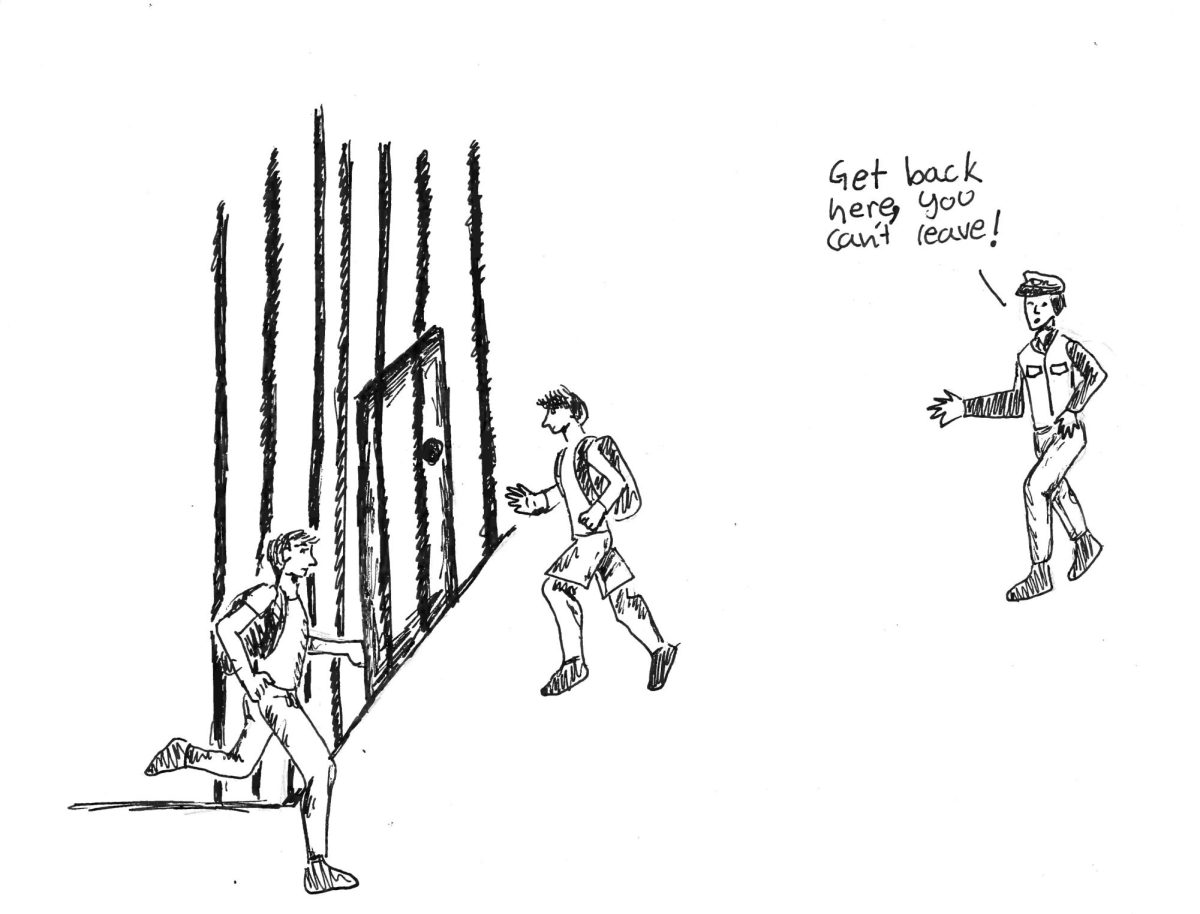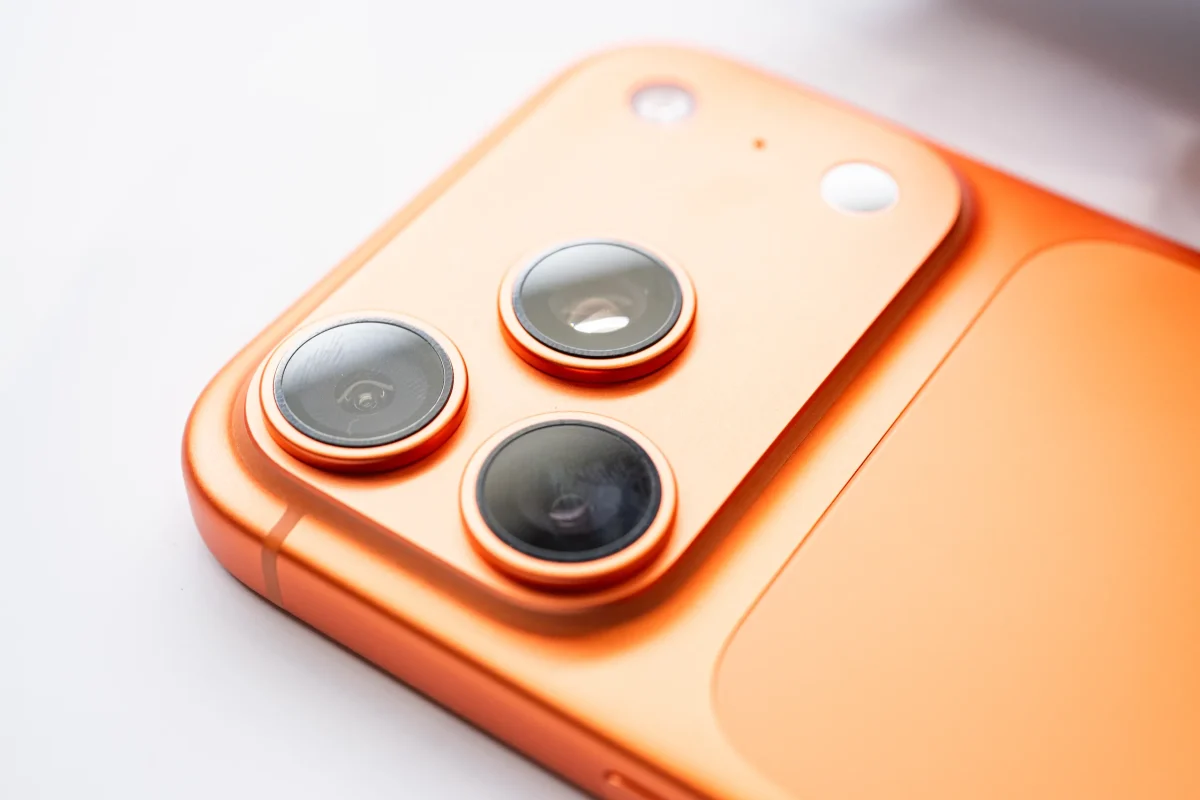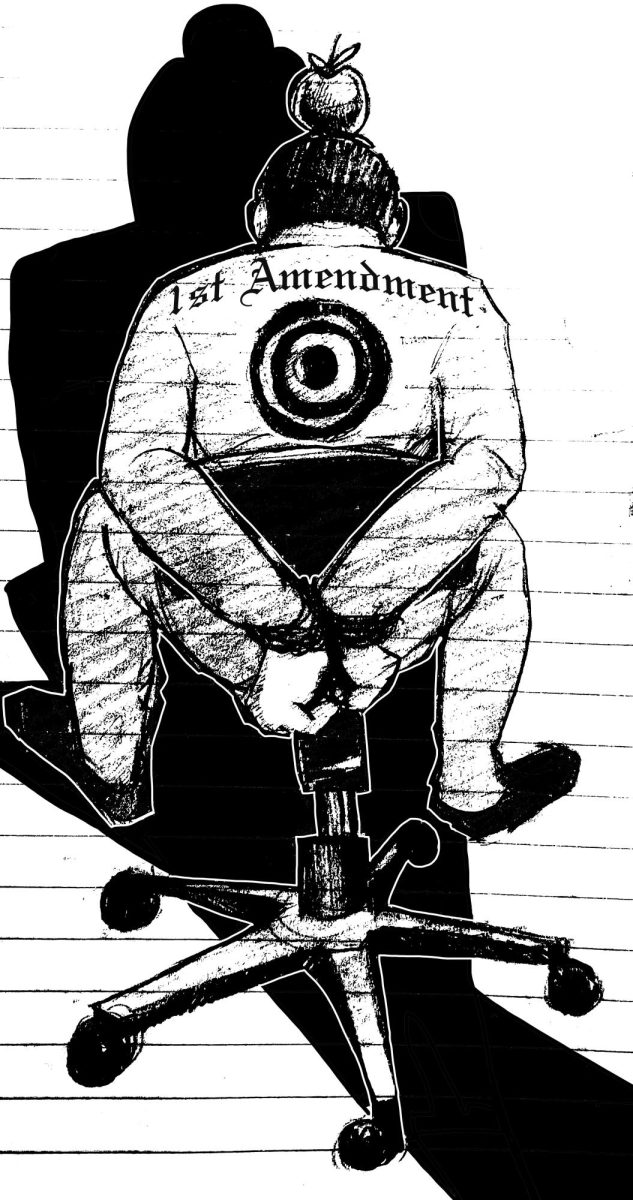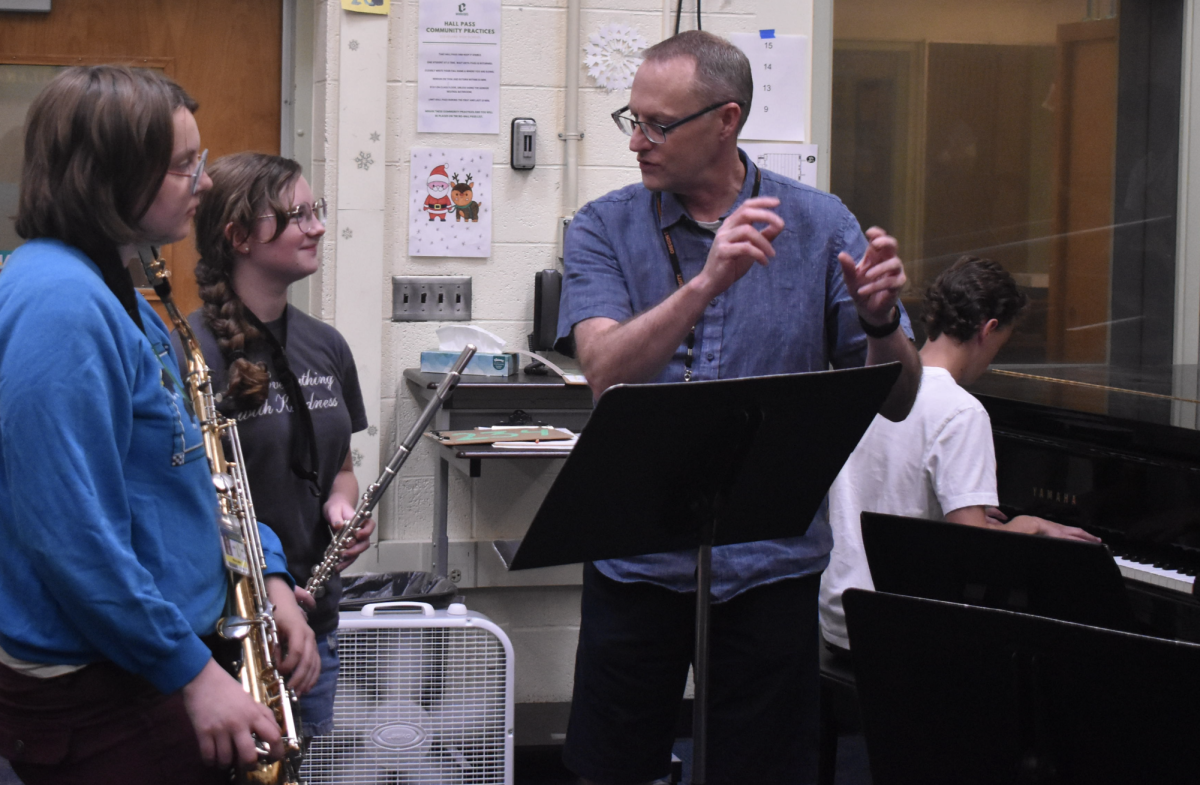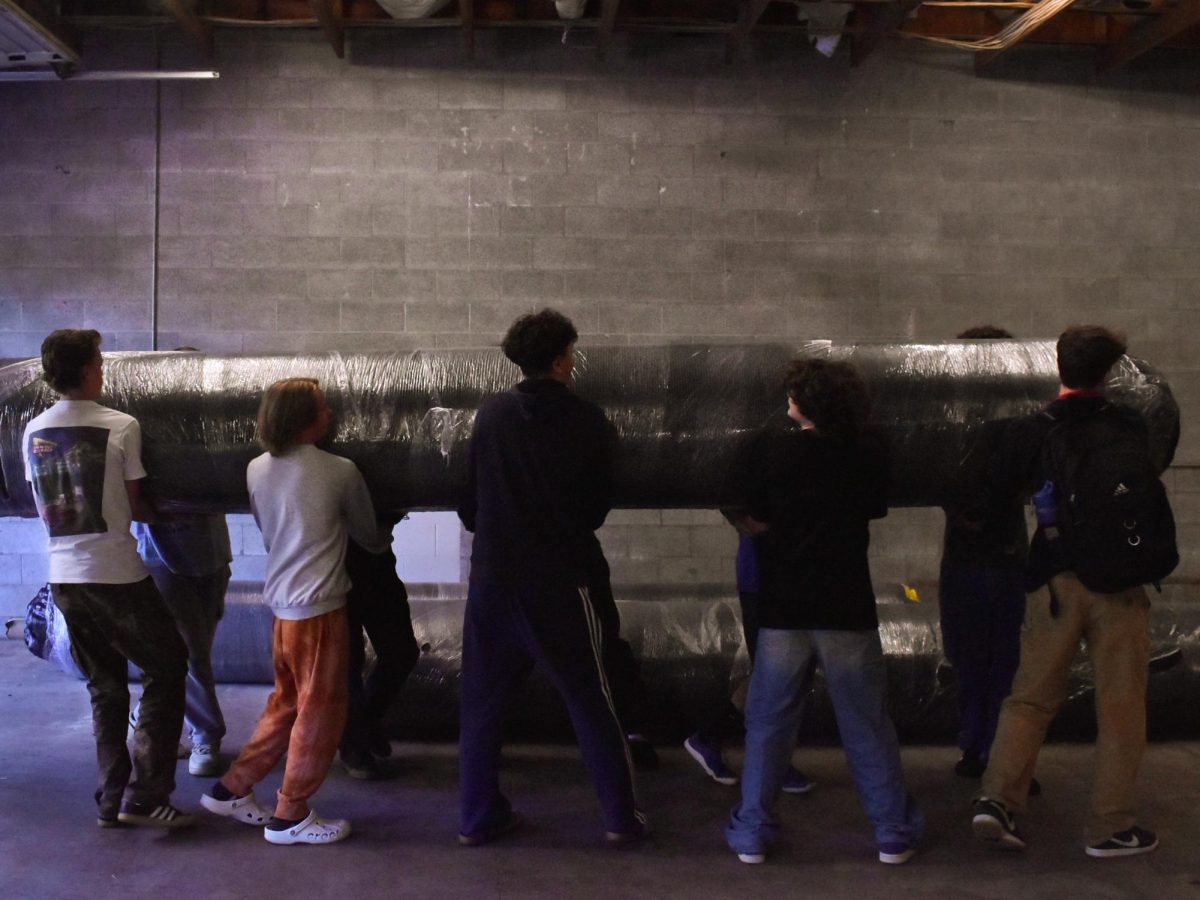IB Extended Essay Showcase
March 11, 2020
Wednesday, Feb. 4 marked the annual tradition of Cleveland High School’s IB Extended Essay showcase.
This showcase is an opportunity for the IB diploma candidates of the senior class to present their 4,000 word research papers, called extended essays (EE), that have been in the works since their junior years. This essay is a requirement to graduate with a full IB diploma, and the class of 2020 produced 63 individual presentations from students graduating from the IB program.
This night is a celebration for families, friends, and diploma candidates for the hours of work that have gone into the essays. For the seniors, it is the final step in their long and tedious writing process.
“I think that doing the EE will actually be one of the most important things that I have done in high school because of how necessary proper research skills are at a college level. I know that next year, in college, I will be asked to write several research papers of this kind and I’m glad that I will have the experience of going through the process once before actually going to college,” said IB senior Owen Lowe-Rogstad.
These presentations are held at Cleveland, organized throughout the school in a series of five, 15-minute sessions. Each senior presents only once, and can then enjoy watching their friends present the essays that have consumed hours of their
time ever since the summer of their junior year.
At the end of the presentation, every senior has a Q & A session with the crowd. “I thought it was really interesting to hear the questions people asked. It made me consider the aspects of my subject that I want to continue learning about myself, and also made me realize how much the process has taught me,” said IB senior Talia Cordova.
The process works like this:
- Each IB junior learns about the essay writing process and its criteria
- Over the summer, each junior is encouraged to pick their topic, their discipline, and to formulate their central question (which structures the entire essay), and begin preliminary research
- Each student chooses a staff member to be their adviser, who will give them advice and edits throughout the entire process
- The real writing process begins, with some time provided in a required class for IB candidates, ToK
- Each question and topic are reviewed by IB coordinator Jennifer Wiandt
- Deadlines approach shortly after the end of first semester
- Advisers give students a preliminary grade before sending off the batch of essays to international graders
- On the night of the Extended Essay showcase, each senior presents their months of hard work to their family, friends, and community
- The essays are completed (finally!)
This is merely a quick break down of the essay writing process. In reality, there is a lot more procrastination, topic changes, complete essay rewrites, tears, but, in the end, a result that leaves every diploma candidate feeling proud of themselves and their peers around them. See the article for tips and tricks from six IB seniors of the class of 2021 on handling the EE process.
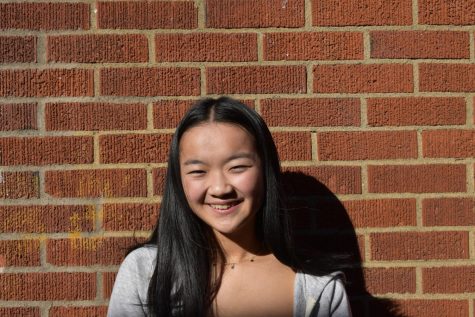
Senior Ruby Beard
First, I’d like to introduce Ruby Beard!
Discipline: Psychology
Title: A Psychological Analysis of Cognitive Bias and Love at First Sight
“I feel really happy that I could share my research. The extended essay is something that IS really, really hard and so I’m glad that we got the experience to share it with others instead of just shipping it off for one person to read. It made it feel like my work was recognized.”
Ruby’s tips & tricks:
- Try, try, try not to procrastinate
- Ask for help if you need it
- Look at lots of sample essays
- Outline and plan A LOT
- Get feedback from your peers! Something that makes sense to you, because you are an expert on the topic, might not make sense to everyone!
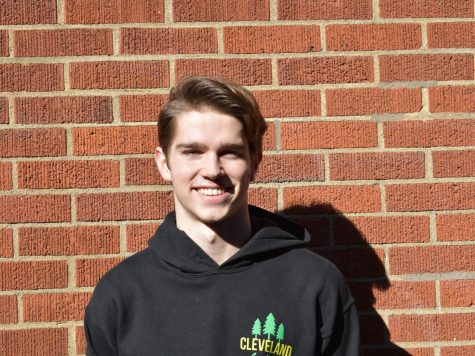
Senior Owen Lowe-Rogstad
Next, Owen Lowe-Rogstad!
Discipline: Film
Title: The Modern Long Take of Alfonso Cuaron
“I believe that the EE is an invaluable piece of the diploma and in my opinion really my high school education. I will be the first to admit that IB requires a lot of hoops to jump through in order to get a diploma, many I believe to have little value, but I do not believe that the EE is one of those hoops. The EE presents a challenge that requires the practice and cultivation of so many important higher educational skills and I think it may be the most valuable part of going through the full IB process.”
Owen’s tips & tricks:
- Narrow down your topic early!
- Figure out your topic BEFORE summer – even if you don’t know your exact question!
- Utilize JSTOR – an online library with a ton of valuable resources
- Write about something you are very passionate about
- Don’t always start with a general search engine, because paywalls can be discouraging! Find unique resources, such as libraries, colleges, etc.
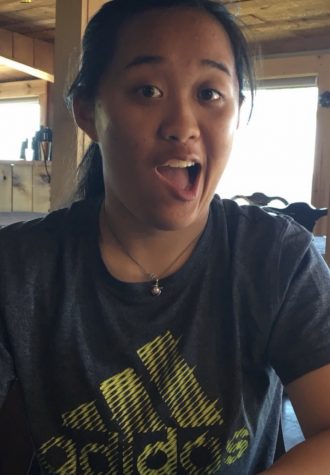
And now, Mei-Li Applegate!
Discipline: History
Title: The Nanjing Massacre: What’s Not Taught in Textbooks or a Classroom
“I believe that the EE is valuable to an extent. It is helpful in providing a glance of college papers are like and allowing practice, however the experience itself is not as valuable. In high school you have eight classes and family duties, a lot of extracurriculars and lack of sleep but in college you have less classes. I think the EE does more harm than good, but in the same way I understand why IB does it. It sometimes seems that IB does not take in consideration how busy we are, and if they want us to be balanced with CAS, they need to provide time for us to be able to do that.”
Mei-Li’s tips & tricks:
- Most of us will procrastinate, but realistically try to plan around the procrastination
- Take mental health days and take care of yourself
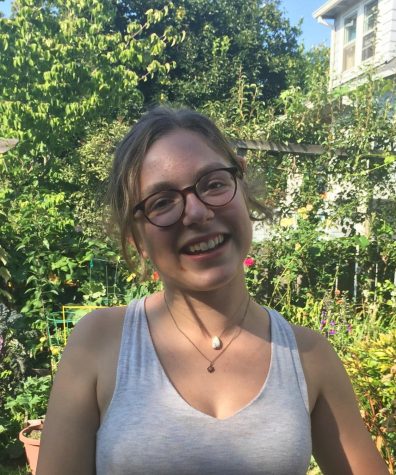
Senior Elinor Sterner
Yet another from Elinor Sterner!
Discipline: Biology
Title: L. gasseri in Yogurt: How Can We Broaden the Health Benefits of Yogurt?
“I don’t speak for everyone, but I feel a lot more prepared to take on a big research project. I think (and have heard from past IB students) that the EE makes college feel far more feasible than it would be.”
Elinor’s tips & tricks:
- Don’t let inexperience in a discipline be a deterrent from choosing an EE under that category, it’s very possible!
- Don’t be afraid to research something that requires outside of school knowledge
- Focus on the process, and what you want to get out of it, not the end result
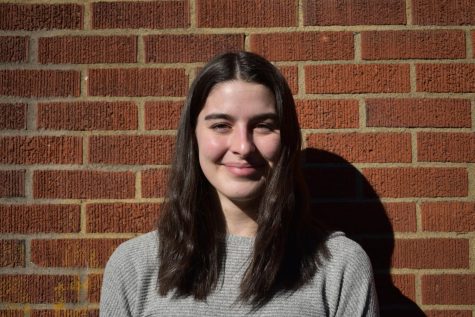
Senior Talia Cordova
Next, Talia Cordova!
Discipline: Anthropology
Title: The Language of Choice: Negotiating Reproductive Policy in Rural India
“My process was stunted by the desire to write linearly. After being used to writing a paper start to finish in the order of intro, body, conclusion, it was initially challenging to realize what a nebulous process the EE can be. I started off writing sections on what I had the most research on, then going back and researching and writing more to fill in the gaps. I wrote my introduction last, even after the conclusion, to be sure it accurately set up the paper. Writing the paper in this disordered way is one of the toughest parts since it can feel disjointed, but I think it ultimately creates a more detailed and cohesive product.”
Talia’s tips & tricks:
- You really, really should start early!
- Advocate for yourself in the process – communicate with your advisor but also reach out to anyone else who you think would give you valuable feedback
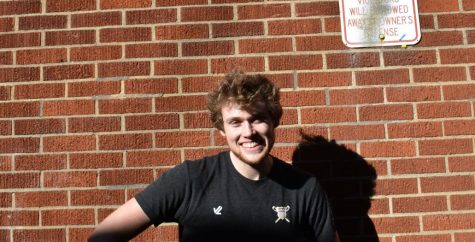
Senior Gus Altucher
And finally, Gus Altucher!
Discipline: World Religions
Title: Buddhism and Existentialism: More in CommonThan You Think?
“My writing process was fairly indirect. I started with the topic of existentialism and Buddhism, but over the summer I became enthralled with Herman Hese’s novel Siddhartha, and I decided to write an English essay instead of an essay in world religions. I finished half of the essay over the summer and the other half once school started. After submitting my almost-final draft to Ms. Wiandt to read over, she realized it’s against the rules to write about a work in translation. A week before the essay was due I rewrote the whole thing as a world religions essay surrounding existentialism and Buddhism as a whole, not just Siddhartha.”
Gus’s Tips & Tricks:
- Just start writing: “4000 words goes by much quicker than one would expect.”
Some extra words of wisdom for all my IB diploma candidates out there:
- “If you are in full IB, don’t act like you’re better than other people who aren’t doing IB- that’s just not cool!” Ruby Beard
- “Throughout the year it is going to feel like it’s a never ending cycle of homework and projects and it is, there is no denying that, but I will say that you will get it done because you have no other choice. Keep in mind this is coming from a pro procrastinator so if you don’t procrastinate then you’ll be just fine. I wish you guys the best of luck and you got this.” Mei-Li Applegate
- “I think the EE and IAs (Internal Assessments) are the parts of the diploma that are most applicable to our futures. I tend to see relatively little value in tests as indicators of how well students actually grasp topics, so the EE as an aspect of the diploma really balances the potential randomness of testing success by giving students a long period of time to create a product that represents their skills.” Talia Cordova
- “I think that doing the EE will actually be one of the most important things that I have done in high school because of how necessary proper research skills are at a college level. I know that next year, in college, I will be asked to write several research papers of this kind and I’m glad that I will have the experience of going through the process once before actually going to college.” Owen Lowe-Rogstad



